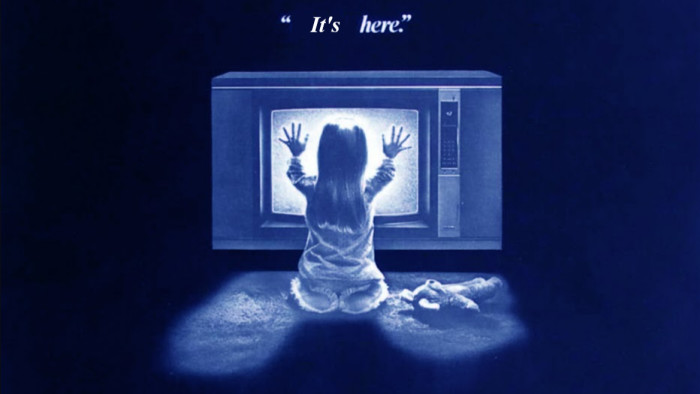Unlock the Editor’s Digest for free
Roula Khalaf, Editor of the FT, selects her favourite stories in this weekly newsletter.
The vibes have been bad for a while. Now there are some, uh . . . other indicators that are looking shaky too.
Markets’ recession signals either arrive too late (when everybody’s already lost their jobs) or too often (see the joke about stocks predicting 10 of the past three recessions). And right now, market signals are a bit of a Rorschach test. US stocks entered a correction in mid-March, but the yield curve hasn’t inverted and high-yield credit spreads remain sanguine. The Federal Reserve is forecasting lower growth and higher inflation, but officials haven’t substantially altered their expected path for policy rates.
In other words: If the music really has stopped, investors and policymakers haven’t responded yet.
So instead we are collecting some of our favourite signals of early economic distress. Please do leave your own preferred rare indicators in the comments, whether they’re flashing a warning or not.
Burrito Now, Pay Later
Worried about the American consumer’s ability to order a taxi for their latte? Not to fear . . . they can now finance their DoorDash purchases with buy-now-pay-later platform Klarna.
The announcement seems to focus a bit more on groceries. This may show that Americans are feeling that 60-per-cent annual increase in the price of eggs, along with signalling that DoorDash is coming for Instacart (Maplebear Inc) ahead of its planned IPO:
Klarna, the AI-powered payments and commerce network, and DoorDash, the premier local commerce platform, have partnered to offer Klarna’s flexible range of payment options to DoorDash customers. In the coming months, DoorDash customers will be able to enjoy Klarna’s seamless range of payment options when purchasing groceries, retail, and even DashPass Annual Plan — on DoorDash.com or through the DoorDash app.
When customers reach check-out, they’ll see Klarna as an additional payment option, giving them more freedom to choose how they want to pay. Options will include:
— Pay in Full allows customers to pay for what they love right away using Klarna’s seamless payments experience.
— Pay in 4 allows customers to pay in four equal interest-free installments
— Pay Later allows customers to defer payments to a more convenient time, such as a date that aligns with their paycheck schedules
DoorDash customers in the United States can soon enjoy the added convenience of Klarna’s seamlessly integrated flexible payment options while shopping from an extensive selection of stores on the DoorDash Marketplace. This partnership empowers customers with maximum choice and control over how they pay — from groceries and the season’s big-ticket electronics to home improvement supplies, beauty, and even their DashPass Annual Plan membership.
Klarna gets extra market-bubble points for describing itself as “AI-powered”. We really hope someone turns BNPL burrito loans into a CDO at some point.
Art of Darkness
People have been taking out loans against their fine art instead of selling at losses amid a broader market decline, as MainFT reports, and now they’re getting margin called:
Top art lenders have asked borrowers for more pictures as security for their loans because the value of their collateral has tumbled in an art market slowdown.
Specialist lenders in the $40bn sector have issued margin calls as the value of paintings pledged against loans has fallen, asking borrowers to make up for the decline by handing over cash or swapping in more expensive artworks.
Art lenders, including Sotheby’s and Christie’s, take security over artworks owned by borrowers so they can take possession and sell the pieces in the event of a default . . .
Sotheby’s, which has a loan book of $1.6bn and launched a bond backed by its art loans last year, had made margin calls because “there are very few categories where the value of art has gone up in the last 24 months”, said Sotheby’s Financial Services global head of lending, Scott Milleisen.
Borrowers aren’t always borrowing against pictures, to be fair. Sometimes they pawn jewellery.
Jobs make the world go ‘round
We learned a few years ago that bad vibes don’t really make a recession . . . Job losses do.
So what if vibes about job security are really bad? From Renaissance Macro this week:
The big news in the UMich data was not inflation expectations. Look at what people are saying about the jobs market! Expected change in unemployment worst since the 2008 recession. No one is asking for a raise in this environment.
Not loving that 2008 comparison, either!
Law school applications
This WSJ article about a sharp jump in law school applications and what it says about the current economic vibes was summed up very nicely by Alex Armlovich of Niskanen:
Everyone who graduated undergrad in 2007-2012 just felt the hair go up on the back of their necks
This is the PMC version of when every wild animal starts running away just before an earthquake https://t.co/YI4pmM9FGd
— Alex Armlovich (@aarmlovi) March 16, 2025
Did politics have an effect? Maybe. Did AI? Probably. Did the change in testing that the WSJ cited? Definitely.
Still, the steep jump in applications seems like a not-great signal for the jobs market. We should also note that actual law school enrolment figures probably aren’t as good of an indicator, because that also depends on whether the number of spots available is growing or shrinking. (You could simply have a smaller group of exceptionally competitive would-be lawyers enrol in a competitive year if classes stay small.)
Club Dropping
The “Strip Club Index” was always a dumb idea for an indicator. This is not because of what it measures (discretionary spending) but because it’s very difficult to measure. We won’t venture a guess about whether that money gets taxed, but it’s not being managed through payroll services like ADP. It also seems to have attracted a whole news cycle for the faux-cession in 2022.
But . . . it is notable, perhaps, to see this from the woman who led the Guardian story about it years ago:
the real recession indicator is that i’m trying to get out of the strip club & get a civilian job
— reversecowgirl69 (@botticellibimbo) March 12, 2025
Also RCI Hospitality — formerly known as Rick’s Cabaret — is down 21 per cent this year. ¯\_(ツ)_/¯

Sugar Daddy disappearance
Anecdotes aren’t data, sure, but after looking at that Guardian story, we might as well put this one out here too:
s*gar d*ddy ghosting… recession indicator
— brecht apologist (@madisontayt_) March 15, 2025
Match Group shares seem to be doing fine, though.
Please do leave your own favourite anecdata in the comments and we’ll include it if it’s good or funny enough.









